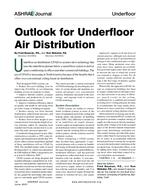Click here to purchase
The representation of internal gains is a major source of uncertainty and error in building models. Even for existing buildings when data are available, the high amount of variability may make day-type diversity scheduling inadequate for calibrating a model and predicting the performance of energy conservation measures. This study used gains data to calibrate the model of a LEED Gold, multi-use university building with wet-lab, dry-lab, and open and partitioned office spaces. Six occupancy schedules, two lighting schedules, and four equipment schedules were developed from building management system data. The day-type diversity schedule method was compared to a simulation with the actual hourly gains data. Next, Monte-Carlo simulations explored the uncertainty in the model results from the uncertainty in the mean gains levels used to create the diversity schedules. To better represent typical daily variations in occupancy and gains, two methods were developed for creating stochastic schedules from the statistical properties of the measured data. The paper explores the effect of the representation of internal gains variability on performance prediction and model calibration. It assesses the level for which this variation should be accounted in a robust predictive model, and the error inherent in representing naturally varying occupant behavior as a daily constant.
Citation: ASHRAE Papers CD: 2014 ASHRAE Winter Conference, New York, NY
Product Details
- Published:
- 2014
- Number of Pages:
- 8
- File Size:
- 1 file , 1 MB
- Product Code(s):
- D-NY-14-C015


